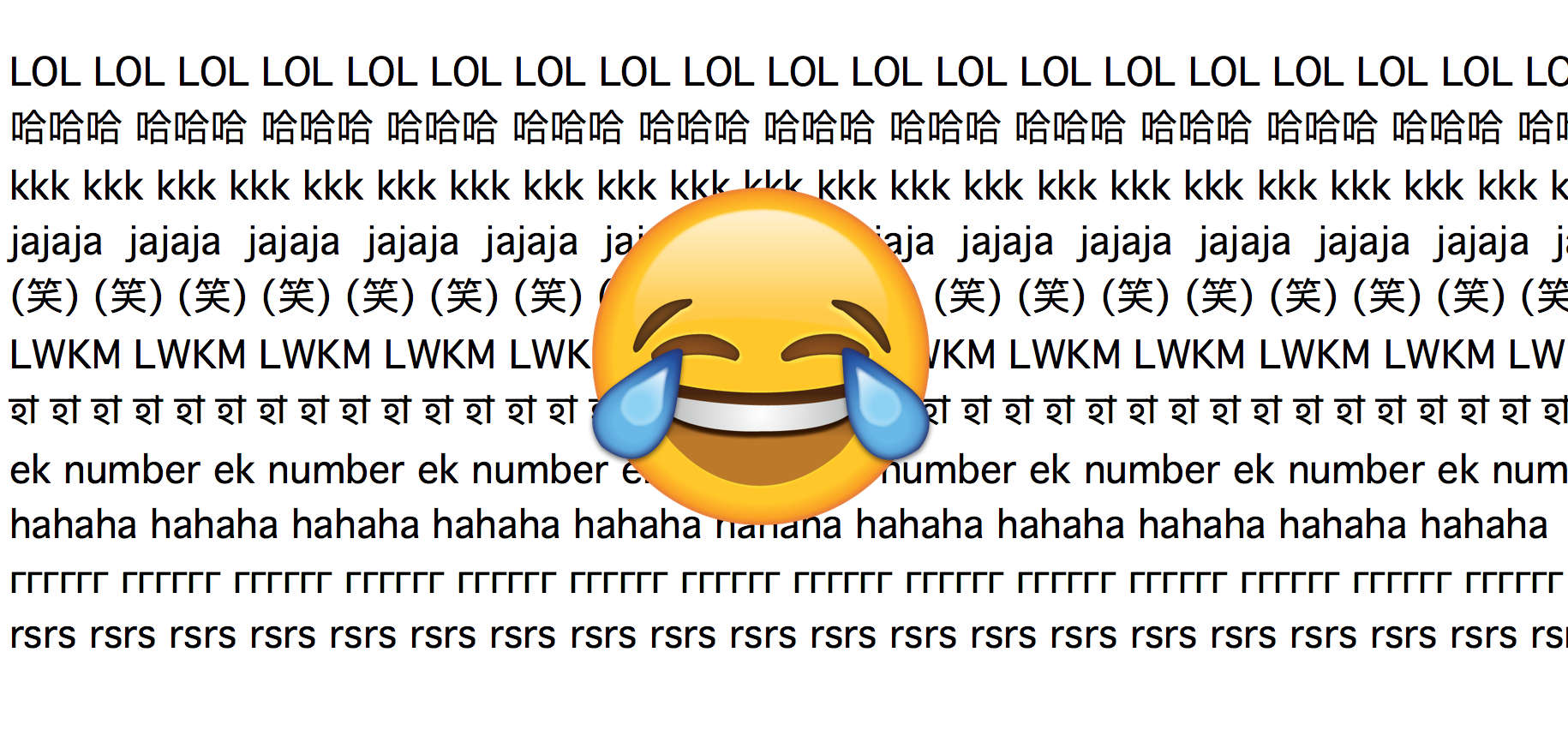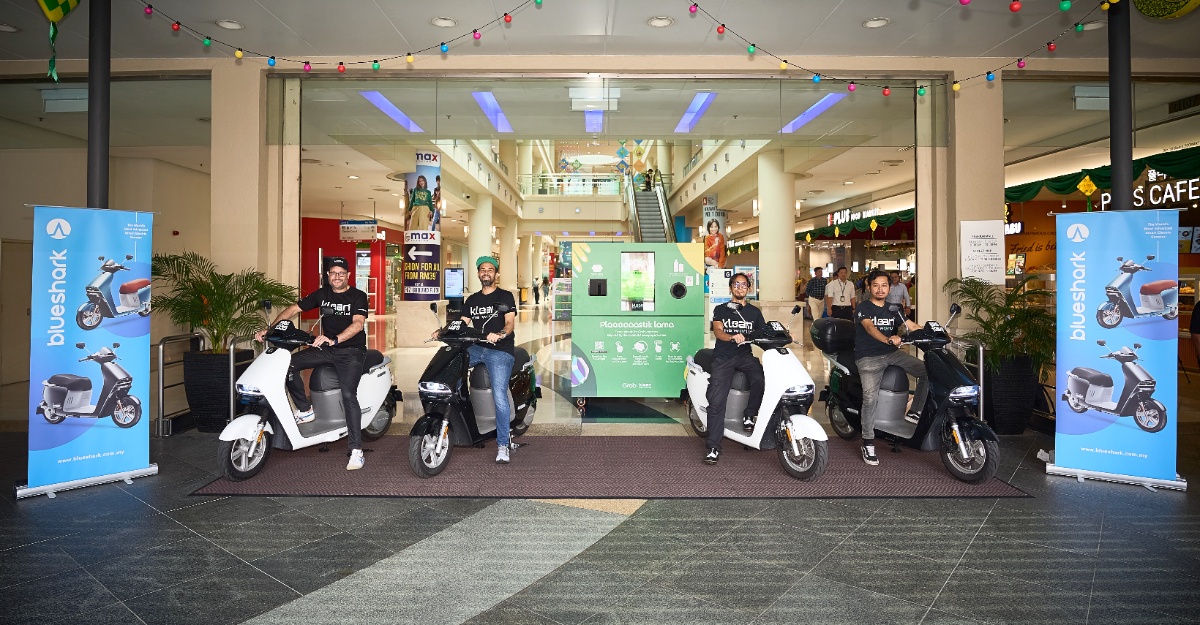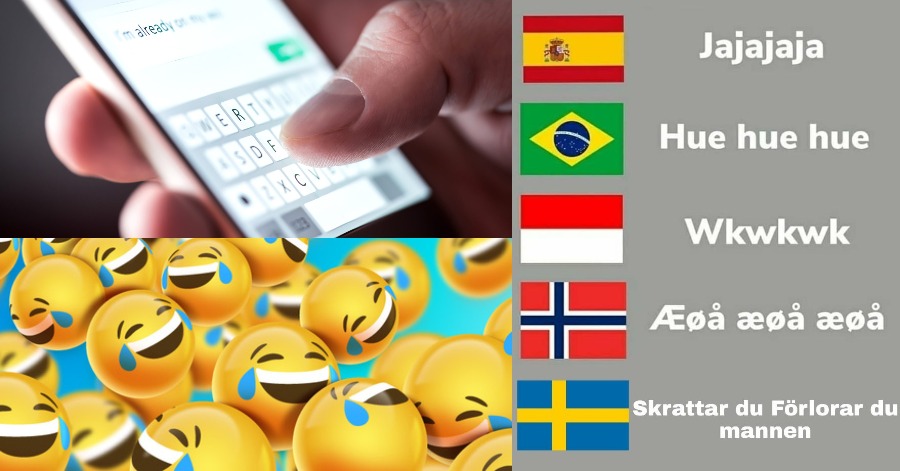When it comes to expressing laughter online, many people rely almost exclusively on either by typing “hahaha” or even the emoticon that is the closest approximation of how they laugh in real life. More than half of all online users will e-laugh today not realizing that sometimes their laugh does not translate in another person’s culture.
This is because different people from different cultures have their own version of how they want to laugh online in different languages. If people do not know, these differences can easily lead to confusion and misunderstanding. To improve our knowledge on that, this is how different people use different languages to e-laugh online.

Picture: Digg
1) Laughing Online In Arabic
“هههههههههه”
In Arabic, people don’t write short vowels like ‘a’. It’s implied. This means even though it’s just a string of ‘h’ sound you read it “hahahahaha”.
2) Laughing Online In Chinese
“哈哈哈哈”
This is a character for the sound “ha”. It has no other meaning as it’s only used for phonetic spellings of western words, or to say “hahahaha”. In Chinese, each character usually has a unique meaning, and a unique syllable. For imported words, a set of “phonetic” characters are used, which don’t really have a common meaning. They’re just used to represent a sound. This is what’s used to laugh online in Chinese text messages.
3) Laughing Online In Korean
“ㅋㅋㅋㅋㅋ”
This is a “k” sound in Korean, which means you read this “k-k-k-k-k-k” like a giggle. But this just represents laughing, and the more is used, the funnier. Korean uses a character set where consonants and vowels are grouped into syllable clusters, called “hangul”. Non-Korean speakers often mistakenly think these are like Hanzi/Kanji characters, but they’re not as they’re purely phonetic.
4) Laughing Online In Thai
“5555555”
The number five is pronounced “ha” which in Thai is “ห้า”. So it’s a cute shorthand to just say “555” instead of writing out “ห้าห้าห้า”. The number five in the Thai numeric system is “๕”. But in Thailand, the standard Roman digits are more common. So they’ll use “5” instead of “๕”.
5) Laughing Online In Spanish
“Jajajaja”
Spanish has no aspirated “h” sound. They say “‘otel”, just like the French. So this “jajaja” is literally pronounced with a soft “kh”, like “khakhakha”. Laughing sarcastically out loud, the Spanish will aspirate the “kh” sound.
6) Laughing Online In French
“mdr”
This isn’t so much an equivalent for “haha” but slang for “mort de rire”, literally “died of laughter”. Guess you could say this is the equivalent of “LOL” in English.
Sources: Discover Discomfort.






















